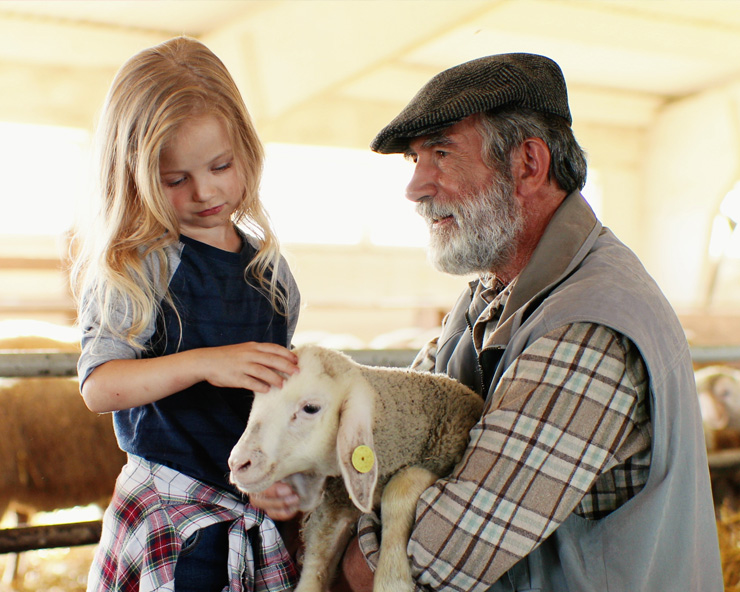Ever wonder what they mean when they say immune compromised? It is important to understand to protect yourself, your loved ones, farm visitors, and workers.
What does immunocompromised mean?
Immune compromised means your immune system isn’t working as well as it should. This can happen for many different reasons. Factors like age or medical treatments, or conditions that affect the immune system play a role. In general, immunocompromised people include children younger than 5, adults over age 65, pregnant women, those infected with illnesses such as HIV or diabetes, and people receiving treatments like chemotherapy and immune-suppressing drugs, such as steroids.
People who are immunocompromised need to take extra precautions around livestock and be especially aware of zoonotic diseases. Zoonoses are diseases that can spread between humans and animals. Those with weakened immune systems are at greater risk of getting and suffering from these diseases.
How can you help protect immune-compromised people on your farm?
It is important to prevent the spread of disease on your farm. Preventing the spread of disease protects everyone on the farm, especially those who are immunocompromised. A few measures to consider:
Handwashing
Hand washing is the best way to prevent diseases from spreading. Wash your hands often when working with animals. Having some type of handwashing station(s) on your organic/alternative farm helps provide easy access to all who enter to wash their hands when needed. Check out this blog post for more information on good handwashing – Keeping your hands clean on the farm.
Protect yourself
Avoid touching your eyes, nose, or mouth when working with animals. Don’t eat or drink in animal areas. Wearing protective gear, when needed, can help protect you from contact with animals who might be carrying diseases. Protective gear can include gloves, masks, eye protection, etc.
Take care of any wounds on your body. Germs can enter through broken skin. Keep cuts, scrapes, and wounds covered when on the farm. Clean and disinfect any bites or scratches from animals. If any wounds become infected, contact your physician.
Keep your animals healthy
Keep an eye on your herd or flock for diseases. Keep sick animals isolated. Handle any sick animals last. Some animals can be at a greater risk of spreading a zoonotic disease, e.g., reptiles, baby chicks, ducklings, pregnant livestock during birthing, and young animals. Consider restricting contact with these types of animals. To get a few good reminders about animal health, check out Animal health monitoring on organic and alternative farms.
Keep animal areas clean
Keep animal areas clean. Diseases can spread with manure build-up, old bedding or litter, or areas that aren’t kept clean. Avoid contact with animal feces and urine. Immunocompromised people should avoid cleaning animal waste areas. If they must, then they should wear protective gear.
Avoid disease vectors
As much as possible, try to keep your animals away from wildlife. Have a way to control rodents and pests on your farm. Protect yourself from ticks, mosquitos, and flies, as they can carry diseases. Avoid handling stray or wild animals. Visit the following link for information: Vectors and disease spread in humans and animals.
More Resources:
Infectious Disease Control Resources – Considerations for Immunocompromised People


At present too many hogs and cattle are eating corn and corn by products that have over 1 ppm mycophenolic acid along with Fusarium mycotoxins that together are very immunosuppressive. The mycophenolic acid is there because many in Iowa last fall just air dried corn when it did not get cold enough until Christmas and the warm air used on sunny days was just as wet as the grain leading to the growth of Penicillium. Major ethanol producers are using black damaged corn blended in with mycophenolic acid “good” corn to make by products that are always 3X higher in toxins than the corn used to make the ethanol. This is a huge animal welfare concern that is being ignored!!! Art Dunham DVM